
Diphthongs are sounds which consist of a movement from one vowel sound to another. Basically there are two vowel sounds pronounced together. Diphthongs are of a great importance because they are responsible for the “foreign” accent.
Usually, learners of English produce a pure vowel where a diphthong is required. Using a vowel instead of a diphthong is a common mistake for Vietnamese learners of English. As an example, the word “cake” is pronounced /kek/ instead of /keɪk/.
There are eight diphthong is English language. I classified them into three categories, in order to remember them easier, according to their ending.
ɪə (as in the word “dear”)
eə (as in the word “hair”)
ʊə (as in the word “newer”)
eɪ (as in the word “day”)
aɪ (as in the word “guy”)
ɔɪ (as is the word “noise”)
əʊ (as in the word “home”)
aʊ (as in the word “mouse”)
The starting point of this diphthong is closer than the sound /ɪ/ in the words “bin” or “bit”
Examples: dear, beard, beer, fierce
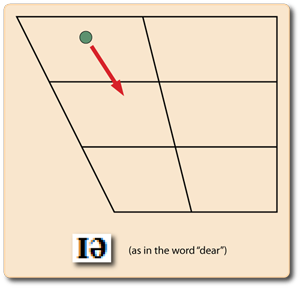
This diphthong starts with the /e/ sound (the sound from the words “get”, “men” etc) and ends with a schwa sound.
Examples: scare, hair, pear, bear
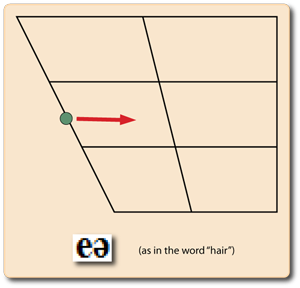
This diphthong has the starting point very close to the sound /ʊ/ from the words “put” or “pull”.
Examples: tour, newer, moored
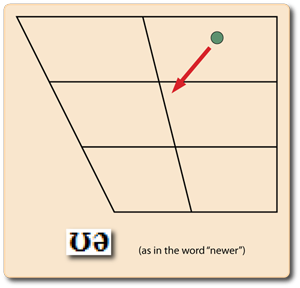
These first three diphthongs end with a glide towards a closer vowel so they are called closing diphthongs.
This diphthong has as starting point the vowel /e/ as in the word “get” or the word “men”.
Examples: day, paid, face
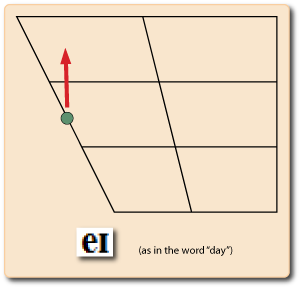
The starting point of this diphthong is very similar to the sound /ʌ/ (as in the word “cut”) which is an open vowel between front and back.
Examples: guy, nice, time
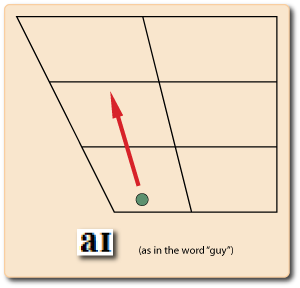
The first part of this diphthong has the same sound as /ɔ/ in the word “born”.
Examples: noise, soy, coin, boil
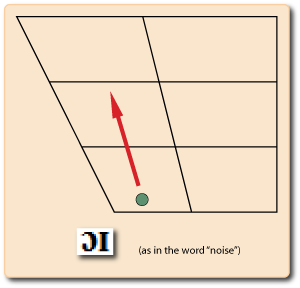
The following two diphthongs glide towards /ʊ/ sound (as in the word “book”) which requires a rounding movement of the lips. However, since the second part of the diphthong is weak, the rounding movement of the lips is not very large.
This diphthong has a beginning sound very similar to schwa sound (as in the word “about”). The lips are slightly rounded just because of the ending sound /ʊ/ of this diphthong.
Examples: home, load, most
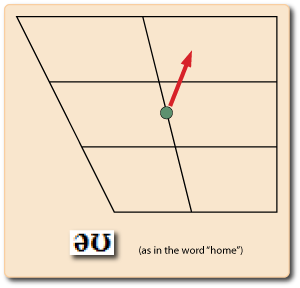
This diphthong begins with a vowel similar to /ɑ/ (as in the word “car”).
Examples: mouse, house, loud, pound
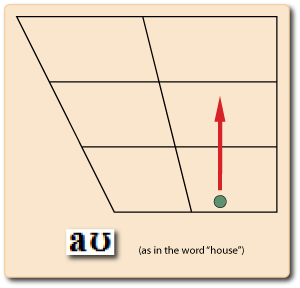
The most complex English sounds are the triphthongs. They are not only difficult to pronounce but also difficult to recognize. Consider a triphthong a glide from a vowel to another vowel then continue the glide to a third vowel.
The best example is the word “hour”. It starts with a sound similar to /a/, continues with a sound similar to the sound produced by the double o of the word “book” and finishes with a schwa sound.
There are five triphthongs in English made up from five diphthongs with a schwa added at the end.
eɪ + ə = eɪə
aɪ + ə = aɪə
ɔɪ + ə = ɔɪə
əʊ + ə = əʊə
aʊ + ə = aʊə
Personally I find triphtongs very difficult to distinguish from some of the vowels. Very often the middle part of the triphthong is not pronounced or because there is so much variation in the amount of vowel movement according to how slow and careful the pronunciation is.
Here are some common words containing a triphthong sound:
eɪə – layer, player
aɪə – liar, fire
ɔɪə – loyal, royal
əʊə – lower, slower
aʊə – power, flower